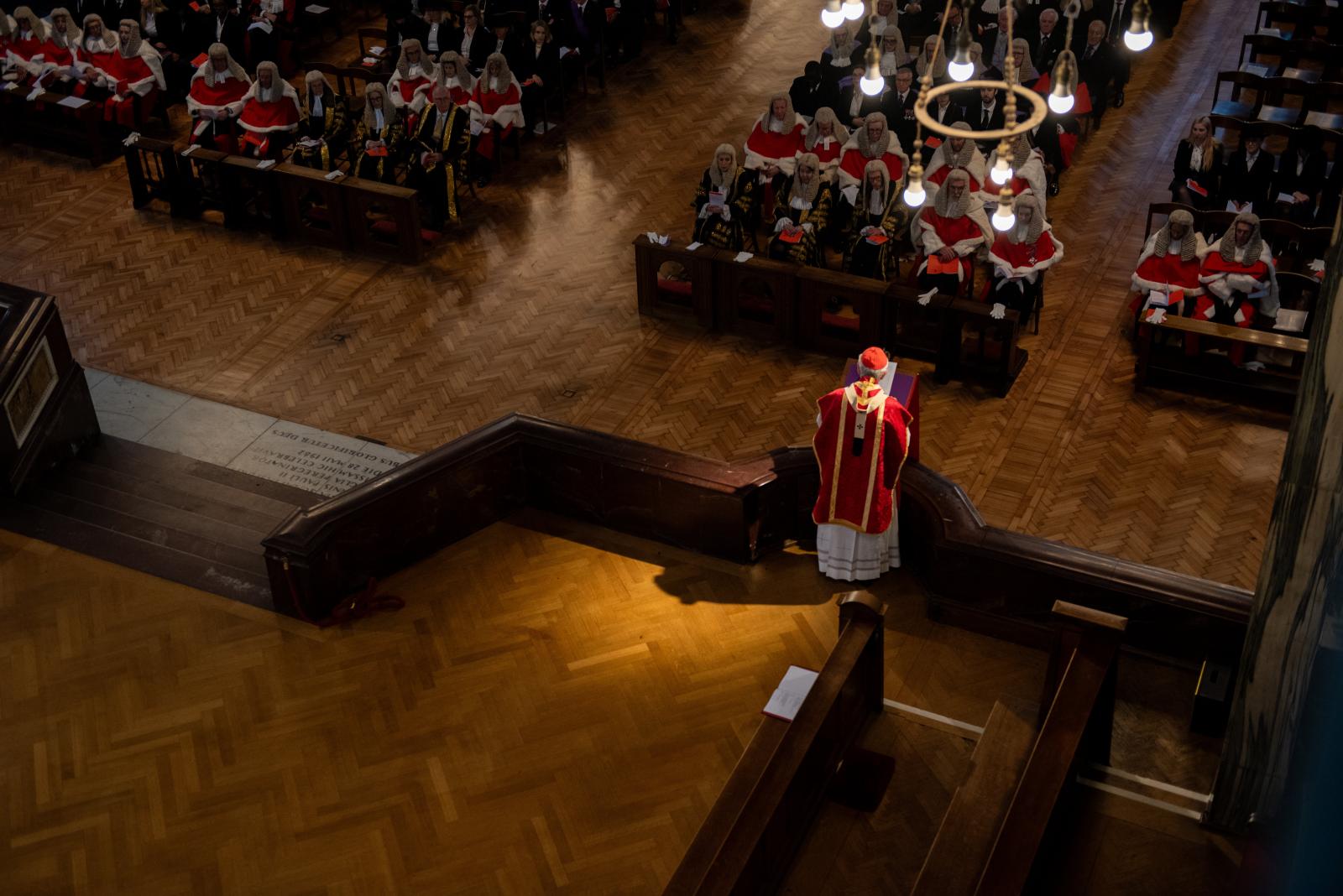Homily given by Cardinal Nichols on 1 October 2025 at Westminster Cathedral for the Red Mass
‘Come, creator Spirit, visit the minds of your faithful’. So begins the hymn, 'Veni, Creator Spiritus', which we sang at the start of this Mass. These are words that encapsulate our prayer at this Red Mass, so named because it is a votive Mass of the Holy Spirit, at which red vestments are worn.
It is a Mass steeped in history. Mass has been celebrated in this country to mark the start of the legal year for more than 800 years, and in Europe still longer. It is right that we, in our turn, do this: we pray that the Holy Spirit will not only guide our minds, but the work of all those entrusted with the administration of law and justice, so essential to the good of society.
Red is, of course, the colour of other celebrations in the life of the Church.
Red is worn for Masses of the martyrs. The witness of one particular martyr, St Thomas More, is uppermost in our hearts today. Indeed, it is a privilege that you have him as your patron. His witness to objective truth is crucial in a world where truth is regarded by some as ever more subjective. His witness to the conviction that faith informs our understanding of the human person remains ever relevant. His love for the One who is the Way, the Truth, and the Life, stands as a shining
example. His unshakeable integrity offers us a pattern and a challenge. St Thomas knew the prize of softening his principles would be great. He shunned that prize. At his trial in 1535, he said, ‘I am not bound to conform my conscience to the council of one realm against the General Council of Christendom.’ In maintaining that stance, he trod the path of martyrdom. His service of God had primacy and great cost.
And red is the colour of Good Friday, a day when justice of a sort was served: the justice of an occupying power, a judgement given by a governor swayed by concern for his own position, a judgement of which he, literally, washed his hands once done. Good Friday was a day that stands as a warning to the world about what happens when legal process is distorted by external pressures of one sort or another. Yet it is to that Victim of such warped justice that we raise our minds and hearts in this Mass. We pray that, in the Eucharist, we may be nourished and strengthened, so that all who live out their Christian vocation in the legal world may do so with hearts ever more closely conformed to that of the Lord. Determination to do His will goes hand in hand with confidence that, as He promises in today’s Gospel, ‘the Holy Spirit will teach you…. what you ought to say.’
As legal practitioners who also practice the Catholic faith, you know well the value each person has in the eyes of God, without exception. And this informs the way you go about your work. As Pope Benedict said, ‘the action of those who administer justice cannot prescind from charity.’ He went on,
‘the perspective and measure of charity will help focus attention on the fact that the judge is always dealing with people, beset by problems and difficulties.’ (Address to the Tribunal of the Roman Rota on the occasion of the inauguration of the Judicial Year, January 29, 2010).
Not surprisingly, this is a theme we find in the Scriptures, too. King Solomon, in his administration of justice, was well aware of his need for the Lord’s assistance if he was to live out his vocation well. We read in the First Book of Kings how he asked the Lord, not for long life or riches, but for ‘an understanding mind… that I may discern between good and evil.’ (1 Kings 3:9).
Today, as this new legal year begins, we do well to make this prayer our own. And we ask the Holy Spirit to fill our minds, to fill our hearts, with the fire of His charity, of His love, and so bless us for all that the coming year will bring.
Amen.
